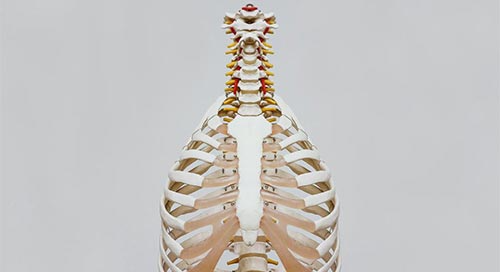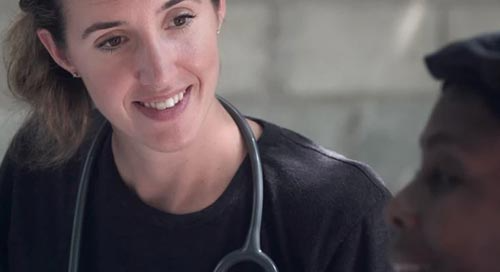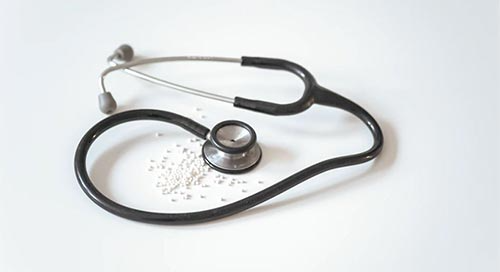interview-critical-appraisal-in-clinical-practice
July 22, 2022

Dr. Charles Young is an experienced medical editor, publisher, and writer. He is a founding editor-in-chief of the journals Clinical Case Reports and Health Science Reports and is a practicing emergency room physician at St. Thomas Hospital in London.
Our team recently sat down with Dr. Young to hear about his views on the future of healthcare and the value of a role in scholarly communications. Read the rest of our interview.
Q: In our earlier interview, we spoke about evidence-based medicine, meta-analyses, and expert opinion as three types of information that contribute to clinical decision-making. How should decision-makers decide what information to use to answer a specific clinical question?
When I teach, I tell students that the level of evidence and type of evidence you need is dependent on the question you are asking. If you’re asking a question about the relative effectiveness of drug A versus drug B, you probably do need a systematic review and meta-analysis. If you’re asking a question about a very rare but important side effect, a large cohort study investigating lots and lots of people over a long period of time is probably more effective at answering that question.
But even with these types of information, you still need expert opinion to tell you how to contextualize the research data: how to use it, how that research data might fit into the real world and be important for patients and clinicians. So it’s not that one type of information is good and one is worse. You need a mixture of information types to really influence decision making in an appropriate way.
Q: It sounds like as a clinician, you may need a variety of information types accessible immediately. Does the current state of medical information meet your needs effectively, or is there room for improvement?
The type of information and the way it’s presented is a lot better than it was previously. I’ve been a clinician for roughly 25 years, and over that time information delivery channels have improved significantly. That said, they’re still not fully optimized for me in my clinical role.
Part of that problem with optimization is related to system factors, outside the control of most content providers. For example, good internet connectivity within a hospital, or content blockers that restrict access to information due to “adult content.” Accessing information is still often not as easy as I need it to be.
And then once I get to the information there’s still the question of whether I believe it as a trusted source. Do I really know where it came from? Can I make a decision based on a particular piece of information, is what it comes down to in the end.
That transparency of quality— the provenance of information – I think is still often lacking.
Q: A lack of transparency around quality makes me think about the many conversations over the past two years about misinformation in medicine, and the public’s experience of watching research unfold in real time.
The pandemic taught people that doctors, nurses and clinicians in general don’t know everything, and even health professionals have to go through a learning process when something new happens. I think it was a big revelation to many people that some information that looks trustworthy about healthcare is complete rubbish, and other information that looks similarly trustworthy is crucially important. It also became obvious there is vast amounts of information available, and some was hard to interpret because it wasn’t clear whether it was correct or not. That issue was new to some non-clinicians, and in the clinician community I think it really emphasized the importance of critical appraisal: being able to look at a piece of information and have a systematic way of understanding its strengths and weaknesses and whether to use it or not.
Q: Can you speak more about the role of critical appraisal?
Critical appraisal is kind of a niche subject in medical school, but actually it’s fundamentally important to my job now as a clinician. Coming back to what I was saying earlier, if I go on Google and find a piece of information, even from a source I trust, I’ve got to be able to confidently appraise it and decide whether I am going to use it or not. If I find a systematic review and meta-analysis, or maybe a randomized controlled trial, I can’t just take it at face value: I must be able to assess it effectively, because my decisions affect people’s lives.
On a related note, I’d like to see more emphasis in medical schools globally not just on critical appraisal but also on information resources: these are trusted information resources; this is how you access them; this is where it’s appropriate to use them; this is where it’s not appropriate to use them; etc. So you go all the way through medical school with this type of teaching, then you become a junior doctor, and you’re on the ward or in the emergency department, and there’s the information resource which you recognize from medical school and you know how to use it. You’ve been trained how to use it and you use it in the right way. That would be amazing, and there’s no reason that can’t happen today.
Q: What might critical appraisal look like for a patient who is trying to learn more about their own health condition?
It’s almost an attitudinal thing, thinking I’m not just going to believe information because it’s in the newspaper I normally read, or because my friend shared it with me. I’m going to really think about whether that information is likely to be true or not. And if I’m not certain, I’m going to find another resource and triangulate and see if more than one source agrees on that point I’m thinking about.
You don’t need to be a clinician or have research training to do critical appraisal; you just need to take that objective view about what’s likely to be true and what isn’t. It’s really nice to meet patients who have done that already – irrespective of whether they’ve got it right or wrong, they’ve gone through that process of saying, “well, I read that but didn’t really believe it, so I’d like your opinion.” That’s a brilliant conversation for me. Members of the public should feel like they can make some of those judgments, but also know that when they need help, it is available.
Want to stay up to date on medical research? Explore our portfolio on Wiley Online Library or follow us on Twitter at @WileyHealth.
Is your organization interested in subscribing to Wiley titles? Learn more about our purchase models and access options for healthcare organizations.



